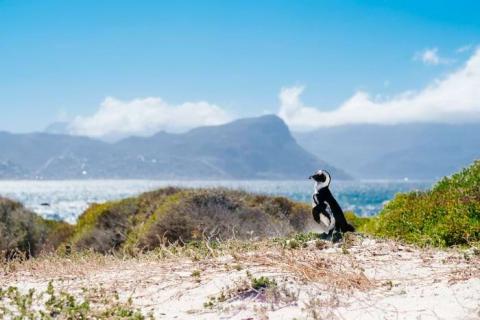Extended deadline: the SPIBES Masters Programme. Full scholarships available

Updated 5 April 2024
Deadline extended — scholarships available
Embark on a transformative educational journey by participating in the Science-Policy-Practice Interfaces on Biodiversity, Ecosystem Services and Climate Change (SPIBES) Masters Programme.
SPIBES is a two-year full-time interdisciplinary course designed to provide prospective students with broad, high-quality understanding, knowledge and skills needed to make active contributions to biodiversity science-policy interfaces such as IPBES, and the attainment of the UN Sustainable Development Goals (SDGs) 2030 in Africa.
This unique opportunity invites aspiring individuals to delve into scientific, philosophical, and innovative explorations, providing a comprehensive and interdisciplinary learning experience. The Masters Programme is designed to nurture not only academic excellence but also a deep understanding of the interconnected nature of various fields, fostering well-rounded individuals equipped to tackle complex challenges.
The programme is offered by University of Félix Houphouet-Boigny (UFHB), Côte d’Ivoire, Addis Ababa University (AAU), Ethiopia, and University of Lubumbashi (UNILU), Democratic Republic of Congo.
Scholarships and research support for this programme include a monthly stipend, tuition fees, health insurance, and a laptop computer. Depending on approval, additional research funds are available.
SPIBES is a vital part of the Capacity Development for Biodiversity and Ecosystem Services Experts in West, Central & and East Africa programm (CABES).
Apply by the extended deadline of 20 april 2024 or until all positions are filled.
About CABES
Capacity Development for Biodiversity and Ecosystem Services Experts (CABES) is dedicated to building the capacity of biodiversity and ecosystem services experts in West, Central, and East Africa — in support of IPBES.
CABES represents a platform to connect scientists from universities, research institutions, and policymakers in West, Central, and East Africa in the field of biodiversity and ecosystem services, to strengthen the science-policy interface, foster national and regional collaborations, enhance policy coherence and reinforce the expert pool to support and disseminate IPBES assessments.
Photograph by Kym Ellis on Unsplash: African Penguins have adapted in a remarkable manner to their warm environment. Their feathers are densely packed, resembling a wetsuit, which helps them stay waterproof and insulated while swimming in the ocean.
